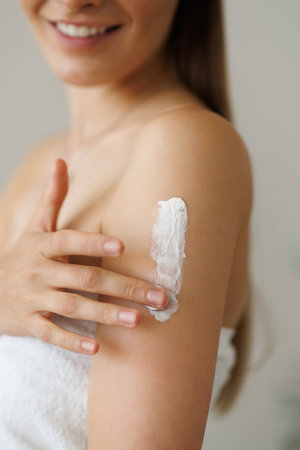1. The State of British Air: Pollution and Everyday Exposure
When we talk about skin health in the UK, it’s impossible to ignore the invisible yet ever-present impact of our environment—especially pollution. Urban centres like London, Manchester, and Birmingham are bustling with life, but this vibrancy comes at a cost. The air is frequently laced with pollutants such as nitrogen dioxide (NO2), particulate matter (PM2.5 and PM10), sulphur dioxide, and ground-level ozone. These substances originate from vehicle emissions, industrial activity, and even domestic heating, quietly weaving themselves into the fabric of everyday British life.
For many Britons, exposure to these pollutants isn’t just an occasional inconvenience—it’s a daily reality. Whether you’re commuting on the Tube, taking a stroll through city parks, or simply opening your windows at home, your skin is continually encountering airborne particles that settle onto its surface. Over time, this constant exposure can trigger irritation, dehydration, premature ageing, and exacerbate existing skin conditions. Understanding what’s in our air is the first step towards protecting our skin from its effects—an essential consideration for anyone living in or visiting the UK’s towns and cities.
2. Unpredictable Weather: How British Climate Impacts Your Skin
If you’ve ever left your house in a cardigan only to be drenched by rain or buffeted by wind within the hour, you know just how capricious British weather can be. This unpredictability isn’t just a talking point for small talk—it directly affects your skin’s health and resilience. From persistent drizzle to sharp winds and those infamous four-seasons-in-a-day spells, the UK climate presents unique challenges that often leave your skin feeling stressed, confused, and in need of some serious TLC.
Frequent Rain & Dampness
The near-constant dampness in the air, especially in regions like Manchester or Scotland, means your skin is perpetually exposed to high humidity. While this might sound hydrating, it actually disrupts your natural barrier, leading to clogged pores, increased sensitivity, and even fungal breakouts. The moisture also prevents sweat from evaporating properly, leaving your skin prone to irritation and congestion.
Wind & Sudden Temperature Changes
Blustery winds—common along coastal areas and open countryside—strip away essential oils from the skin’s surface. This can result in dryness, flakiness, and aggravation of conditions like eczema or rosacea. Meanwhile, sudden shifts from chilly outdoors to centrally heated indoors shock your skin into overdrive, causing redness, dehydration, and sometimes even broken capillaries.
The British Weather Skin Stress Table
| Weather Factor | Skin Impact | Common Symptoms |
|---|---|---|
| Frequent Rain/Dampness | Pore congestion, barrier disruption | Sensitivity, breakouts |
| Wind | Lipid loss, surface irritation | Dryness, redness, flaking |
| Temperature Swings | Dehydration, vascular stress | Tightness, flushing, broken capillaries |
Why It Matters for Your Skincare Routine
Navigating these weather extremes calls for more than basic moisturisers or off-the-shelf cleansers. When your environment changes so rapidly and so often—as is typical in the UK—it places extraordinary demands on your skin’s ability to adapt. To safeguard your complexion against this constant barrage of environmental stressors, an upgraded approach with medical-grade skincare is not just a luxury; it becomes an essential act of self-care that empowers you to look—and feel—your most confident self every day.

3. Common Skin Challenges Faced in the UK
Britons are no strangers to unique skin challenges, thanks to a combination of environmental factors and the ever-changing British weather. The unpredictable mix of rain, wind, and occasional sun, paired with high pollution levels in urban areas, often leads to a range of skin concerns that can be both frustrating and persistent. Sensitivity is one of the most frequently reported issues, with many people experiencing irritation and flare-ups as their skin battles against cold winds, damp air, and fluctuating temperatures. This heightened sensitivity can leave skin feeling sore, tight, or prone to redness.
Dryness is another prevalent concern across the UK. Central heating indoors and chilly air outdoors can strip moisture from the skin, leaving it dehydrated and sometimes flaky. This lack of hydration not only affects comfort but can also compromise the skin’s natural barrier function, making it even more susceptible to external aggressors like pollution. In cities such as London, where air quality can be particularly poor, pollution-induced ageing is becoming an increasing worry. Fine particulate matter in the air can settle on the skin’s surface, contributing to oxidative stress, dullness, uneven tone, and premature lines.
Redness—often linked to both environmental exposure and underlying sensitivity—is another challenge that many Britons face. The damp British climate may exacerbate rosacea or cause sporadic flushes in individuals with reactive skin types. Over time, repeated exposure to these external stressors can accelerate visible signs of ageing and diminish overall skin health. Understanding these common challenges is a vital first step towards building a skincare routine that offers both protection and repair—especially when considering the advanced benefits offered by medical-grade formulations.
4. Why Off-the-Shelf Solutions Might Fall Short
When it comes to caring for skin exposed to the unpredictable British climate and persistent urban pollution, standard skincare products from the high street or chemist may not always rise to the challenge. These over-the-counter formulas, while convenient, are often crafted for a broad global audience rather than specifically targeting the unique environmental factors faced here in the UK. Let’s break down exactly where these conventional solutions can miss the mark:
| Challenge | Typical Off-the-Shelf Approach | Potential Limitation |
|---|---|---|
| Frequent Rain & Humidity Fluctuations | Generic moisturisers and cleansers | May not balance hydration effectively during rapid weather shifts, leading to either dryness or congestion |
| Urban Air Pollution (e.g., London smog) | Basic SPF or antioxidant creams | Often lack robust, clinically proven ingredients for neutralising particulate matter and preventing premature ageing |
| Cultural Habits (e.g., indoor heating in winter) | Standard hydrating serums | Might not provide adequate barrier repair or deep nourishment needed after prolonged exposure to dry indoor environments |
The Issue of Generic Formulations
Most off-the-shelf products are designed with mass appeal in mind. This means they generally avoid potent concentrations of active ingredients or advanced delivery systems that could address more complex concerns—such as those caused by the interplay between UK weather and pollution. Without this targeted efficacy, many people find their skin concerns persist despite diligent use of widely available brands.
Lack of Personalisation
An additional limitation is the “one-size-fits-all” approach. Skin needs can vary dramatically not only from person to person but also season to season in Britain. What works on a mild spring day in Cornwall might utterly fail during a blustery winter commute through Manchester.
Navigating British Environmental Challenges with Confidence
If you’re feeling let down by mainstream skincare, you’re certainly not alone. Recognising these limitations is your first step towards finding solutions that genuinely nurture your skin’s resilience—especially when facing everything the Great British weather and city life can throw your way.
5. Medical-Grade Skincare: What Sets It Apart?
When it comes to safeguarding your skin from the notorious British weather and ever-present pollution, medical-grade skincare stands a cut above the rest. But what exactly does “medical-grade” mean, and why is it so effective against our unique environmental challenges?
Defining Medical-Grade Skincare
Unlike over-the-counter products, medical-grade skincare—sometimes referred to as cosmeceuticals—contains higher concentrations of active ingredients that are clinically tested and backed by scientific research. These formulations are developed to penetrate deeper layers of the skin, targeting underlying concerns rather than just addressing surface symptoms. In the UK, many of these products are only available through licensed professionals or clinics, ensuring both safety and efficacy.
Why Advanced Formulations Matter
The unpredictable British climate—with its damp winters, blustery winds, and intermittent sunshine—can leave skin stressed and more susceptible to damage from environmental aggressors like air pollution. Medical-grade skincare uses potent antioxidants such as vitamin C, E, and ferulic acid to neutralise free radicals caused by pollutants. Moreover, ingredients like retinoids, peptides, and hyaluronic acid are expertly blended in concentrations high enough to promote real change within the skin’s structure.
Targeted Solutions for British Skin Woes
While traditional skincare may offer temporary comfort, only medical-grade formulas can repair compromised skin barriers and reverse pollution-induced dullness or premature ageing. These advanced products are tailored to address specific issues common in the UK—from redness aggravated by chilly winds to breakouts triggered by urban smog. With regular use under professional guidance, you can expect tangible improvements: brighter complexion, smoother texture, and stronger resilience against whatever the British weather throws your way.
Empowering Confidence Through Science
Ultimately, investing in medical-grade skincare is an empowering step towards nurturing your skin with precision and care. It’s about giving yourself access to the best that science has to offer—so you can face every day with confidence, regardless of what’s happening outside your window.
6. How to Build an Effective Routine for the British Climate
Expert Advice for Tailoring Your Skincare
Living in the UK means facing unpredictable weather—one moment there’s a drizzle, the next, harsh winds or even a rare sunny spell. Coupled with urban pollution, these conditions can leave your skin feeling stressed and vulnerable. Fortunately, integrating medical-grade skincare into your daily regimen can make all the difference. Here’s how to create a routine that’s as adaptable as British weather itself.
Step 1: Prioritise Cleansing
Start and end your day with a gentle yet effective cleanser. Medical-grade cleansers are designed to remove not just dirt and oil, but also microscopic pollutants that cling to your skin after a day in London’s air. This vital first step helps prevent clogged pores and dullness, setting the foundation for everything that follows.
Step 2: Layer Targeted Treatments
After cleansing, apply serums with clinically proven ingredients such as antioxidants (like Vitamin C or E) and niacinamide. These ingredients help neutralise the free radicals generated by pollution and fortify your skin’s natural barrier against moisture-sapping winds. Medical-grade formulas are more concentrated, ensuring you get optimal results without irritation—key in a climate where skin can easily become sensitised.
Step 3: Hydrate—No Matter the Weather
The British climate can swing from damp to dry quickly. Choose a medical-grade moisturiser tailored to your skin type—look for options rich in ceramides or hyaluronic acid to maintain hydration and resilience. Even on misty days, don’t skip this step; well-hydrated skin is better equipped to defend itself from external aggressors.
Step 4: Don’t Forget Daily SPF
Clouds are no excuse to skip sun protection. Up to 80% of UV rays penetrate cloud cover, and pollution can intensify their effects. Opt for a broad-spectrum SPF formulated for sensitive skin; many medical-grade options offer added antioxidants for double-duty protection.
Step 5: Consult a Professional
To truly personalise your routine, consider booking a consultation with a dermatologist or advanced skincare professional. They can recommend the best medical-grade products based on your skin’s unique needs and the particular challenges posed by where you live—be it bustling Birmingham or breezy Brighton.
Your Skin, Your Shield
The British climate and pollution may be tough on your skin, but with the right knowledge and products, you can build a routine that protects, restores, and enhances your natural radiance. Embrace these expert-backed steps and let your daily ritual become your strongest line of defence—rain or shine.


